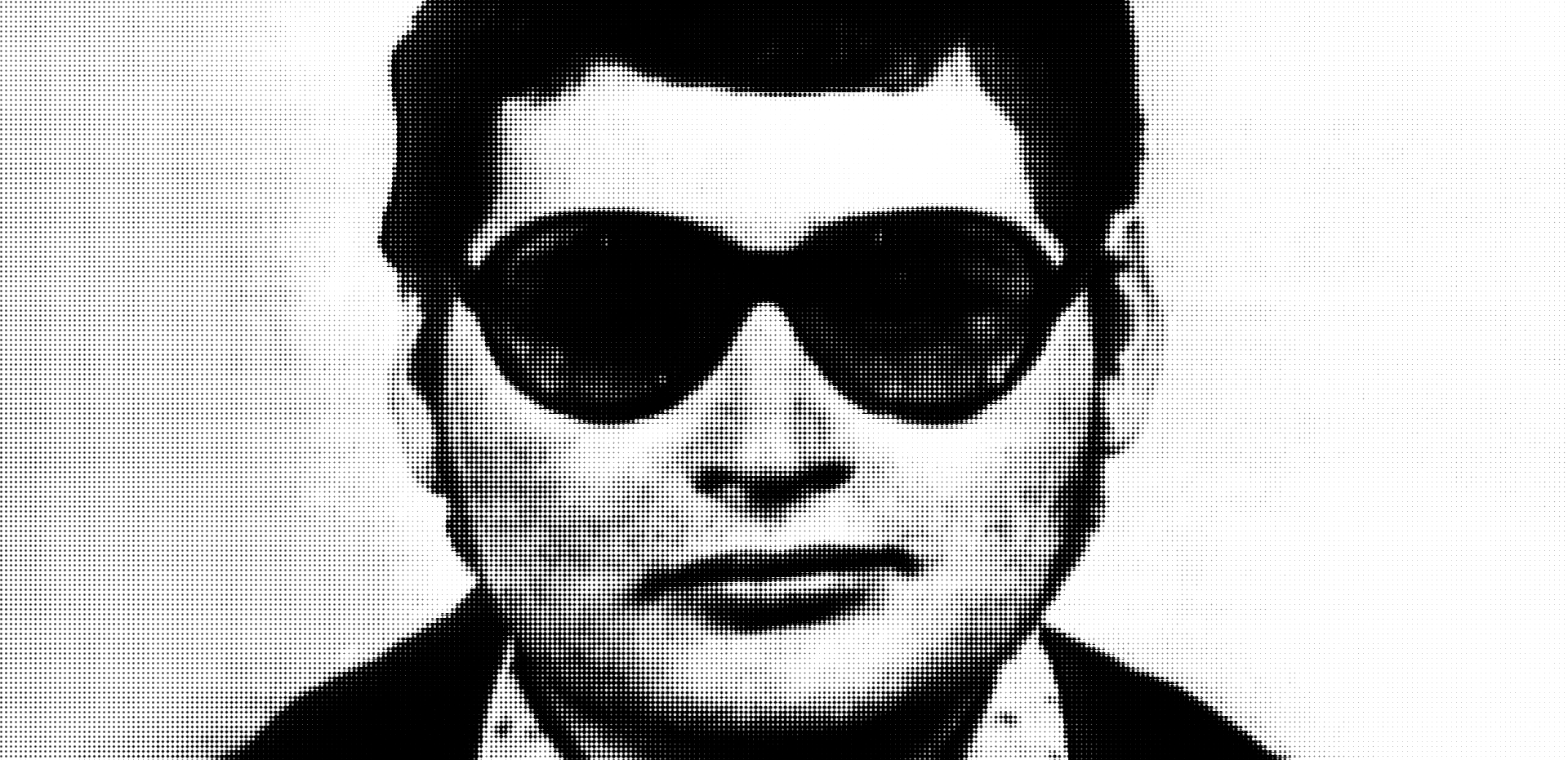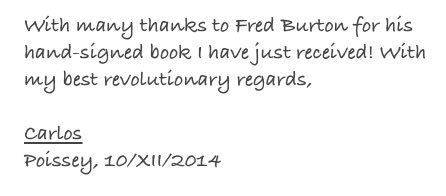Carlos
In my office, visitors are surprised to see that I have a copy of one of my own books signed by Ilyich Ramírez Sánchez, better known as “Carlos the Jackal.”

In my office, visitors are surprised to see that I have a copy of one of my own books signed by Ilyich Ramírez Sánchez, better known as “Carlos the Jackal.” The book is Chasing Shadows: A Special Agent’s Lifelong Hunt to Bring A Cold War Assassin to Justice, and chronicles my 37-year investigation into the murder of an Israeli military attaché, in Bethesda, Maryland.

As a young State Department special agent in the 1980’s, before the age of computers; writing reports and cables on typewriters; and carrying old school S&W .357 magnums, I was assigned to a three-man counterterrorism branch. There were three of us for the world. We attempted to track The Jackal, who was the poster child of global terrorism at the time. He was a paid assassin, with support from state sponsors of terrorism, like the Soviet Union and Libya. The Jackal got his nickname from the Frederick Forsyth thriller, The Day of The Jackal. I never thought he would be caught.
In the 1980’s, the counterterrorism agencies of the U.S. Government looked nothing like the television series “Homeland.” Our intelligence databases were made up of 3-by-5 index cards, paper files, and newspaper clippings. In our small office, we had a dog-eared brown accordion legal sized folder labeled “Carlos,” jam packed with a hodgepodge of newspaper stories, Foreign Broadcast Information Service reports, vague intelligence alerts, magazine articles, INTERPOL notices, and a grainy, haunting black & white surveillance photograph of Carlos, clad in a black, leather jacket, walking on a tarmac in God knows where.
As I dove into the July 1, 1973 murder of Colonel Joseph Alon, the Israeli military attaché, I realized that Carlos might be a valuable source of information, since he had worked with many radical Palestinian groups in the same era as Alon’s killing. My efforts to talk to Carlos directly in a French jail failed, but I was able to correspond with Magdalena Kopp, Carlos’ wife and a former terrorist herself. She was friendly and cooperative. Kopp was one of the founding members of the leftist German Revolutionary cells, closely aligned with the Popular Front for the Liberation of Palestine.
Eventually, I was able to identify the man who I believe pulled the trigger and ended Colonel Alon’s life, which you can read more about in Chasing Shadows. The passage of time and the destruction of evidence by the FBI in the case, as I outline in the book, meant there would never be any trial. However, there were still loose ends to wrap up, such as who drove the get-away car from the attack scene that hot summer night?
In 2014, the FBI in Paris, France, reopened the investigation into Alon’s death, and an agent got in touch to ask if I would send a few signed copies of my book to their office, including one meant for Carlos. Since the case had languished for years after my book was published, I was simply happy that someone in a position to help had taken an interest in the case. A few weeks later, rather unexpectedly, one of the copies of my book came back inscribed with the words “my best revolutionary regards, Carlos.”
But, there had been no need for him to underline his name, I knew exactly who he was. In my mind, when I close my eyes, I can still see that brown, dog-eared accordion folder on my wooden desk, labeled “Carlos”, in black magic marker.
Fred Burton is the Chief Security Officer at Stratfor, former State Department special agent, police officer and New York Times-best selling author. You can follow Fred Burton on Twitter @fred_burton
